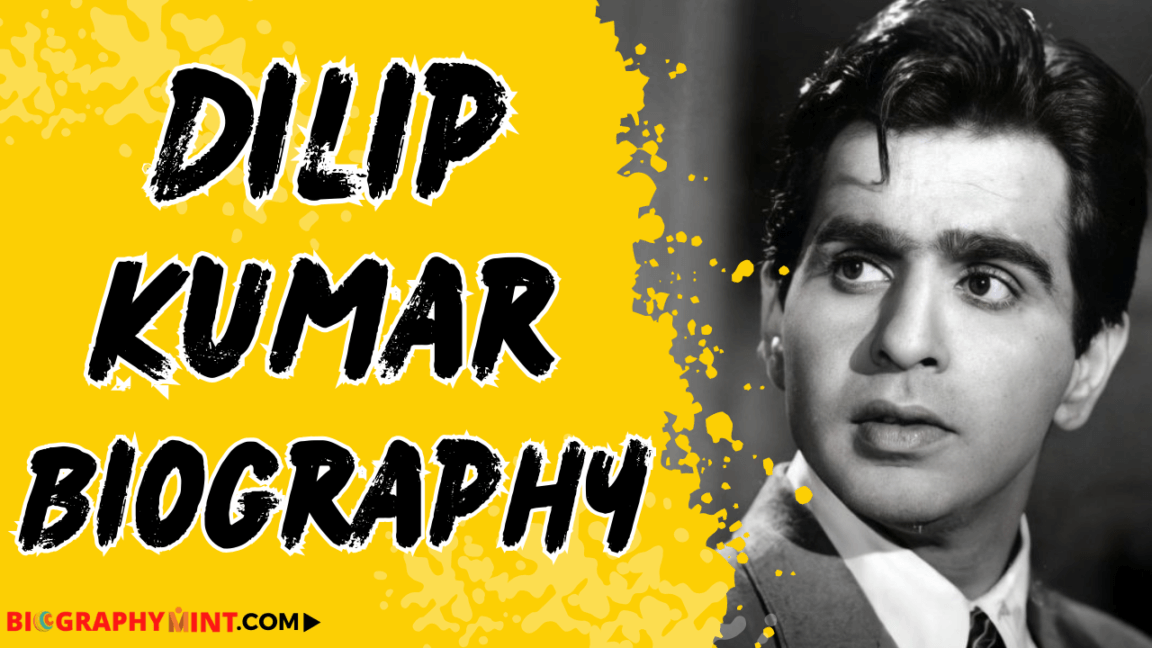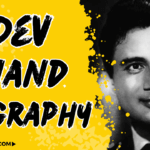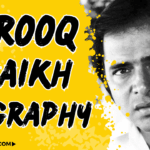Introduction
Exploring the life of a legendary figure like Dilip Kumar is akin to embarking on a captivating journey through the golden era of Indian cinema. Unraveling the intricacies of his age, the profound impact of his work, and the cherished moments shared with his family, this article delves deep into the multifaceted persona that was Dilip Kumar.
As we navigate through the chapters of his life story, expect to be immersed in tales of talent, resilience, and unwavering commitment to art. Promising an intimate portrayal of one of Bollywood’s most revered actors, this narrative not only celebrates his legacy but also offers a glimpse into the indelible mark he left on Indian cinema and hearts worldwide.
Early Life of Dilip Kumar
Dilip Kumar, whose real name was Mohammad Yusuf Khan, was born on December 11, 1922, in Peshawar, British India. He hailed from a family with a fruit business and had a modest upbringing. His parents were Ayesha Begum and Lala Ghulam Sarwar.
Yusuf Khan’s family relocated to Mumbai in the late 1930s. Dilip Kumar initially pursued a career in the canteen business but later found his calling in acting. His passion for literature and performing arts blossomed during his early years in Bombay.
The young Yusuf Khan was deeply influenced by the performances he witnessed at Prithvi Theatre. His encounters with legendary actors like Ashok Kumar and Devika Rani ignited his desire to pursue acting as a full-time career. This marked the beginning of his transformation into Dilip Kumar, the iconic actor.
Despite facing initial skepticism from his family regarding his choice of profession, Dilip Kumar’s determination to excel in acting remained unwavering. He enrolled at Bombay’s famous Wilson College but ultimately left higher education to focus entirely on honing his craft as an actor.
Dilip Kumar’s Rise to Stardom
During the 1940s, Dilip Kumar made his acting debut in the film “Jwar Bhata” (1944). However, it was his role in “Jugnu” (1947) that garnered attention. His breakthrough came with “Shaheed” (1948), where he displayed his exceptional acting prowess, earning critical acclaim.
With each film, Dilip Kumar’s reputation as a versatile actor grew. His nuanced performances in movies like “Andaz” (1949) and “Deedar” (1951) showcased his ability to portray complex emotions with authenticity. Audiences and critics alike were captivated by his screen presence.
The 1950s marked a golden period for Dilip Kumar’s career. Movies such as “Daag” (1952), “Devdas” (1955), and “Naya Daur” (1957) solidified his status as one of Indian cinema’s finest actors. His collaboration with directors like Bimal Roy and Mehboob Khan further elevated his stature.
By the late 1950s, Dilip Kumar had become a household name across India. His performances in iconic films like “Mughal-e-Azam” (1960) and “Ganga Jamuna” (1961) cemented his legacy in Bollywood. His ability to connect with audiences on an emotional level made him an enduring star of Indian cinema.
Dilip Kumar’s Iconic Movie Roles
Mughal-e-Azam (1960)
In the timeless epic Mughal-e-Azam, Dilip Kumar portrayed the conflicted Prince Salim with unparalleled emotional depth. His chemistry with Madhubala on-screen was legendary, making this film a classic that continues to captivate audiences with its grandeur and tragic love story.
Devdas (1955)
Dilip Kumar’s portrayal of Devdas, the tormented lover entangled in unrequited love, left an indelible mark on Indian cinema. His nuanced performance captured the character’s inner turmoil and heartbreak with such raw emotion that it resonated deeply with audiences.
Naya Daur (1957)
In the socially relevant drama Naya Daur, Dilip Kumar shone as Shankar, a spirited tongawala fighting against modernization threatening his traditional way of life. His performance showcased his versatility and commitment to telling stories that had a lasting impact on society.
Andaz (1949)
Dilip Kumar’s role as Dilip in Andaz showcased his romantic charm and acting prowess. The film explored complex themes of love and friendship, with Dilip Kumar delivering a nuanced performance that highlighted his ability to portray vulnerability and strength in equal measure.
Dilip Kumar’s personal life offered a glimpse into his family dynamics and the love he shared with his wife.
The Khan Family
Dilip Kumar, born as Muhammad Yusuf Khan, hailed from a simple family in Peshawar. His parents were Ghulam Sarwar and Ayesha Begum. Dilip was the youngest of their 12 children, growing up in a household steeped in tradition and values.
Despite facing financial struggles early on, Dilip Kumar’s family provided him with unwavering support and encouragement to pursue his dreams of becoming an actor. Their bond remained strong throughout his life, reflecting the importance of familial ties to him.
Saira Banu: The Love of His Life
Saira Banu became Dilip Kumar’s second wife in 1966, marking the beginning of a beautiful partnership that transcended time. Their love story captured hearts as they navigated life’s challenges together with grace and devotion.
Known for her elegance and grace, Saira Banu stood by Dilip Kumar through thick and thin, embodying the essence of unwavering companionship. Their marriage symbolized enduring love that inspired many amidst the glitz and glamour of Bollywood.
Dilip Kumar’s Impact on Indian Cinema
Dilip Kumar is widely regarded as one of the greatest actors in the history of Indian cinema. His impact on the film industry is immeasurable, having set a standard for excellence that inspired generations of actors and filmmakers.
Known for his intense performances and nuanced portrayals of complex characters, Dilip Kumar brought a depth and authenticity to his roles that elevated Indian cinema to new heights. He was a pioneer in method acting, bringing a sense of realism and emotional depth to his characters that resonated with audiences across the country.
Through his work in iconic films such as “Mughal-E-Azam,” “Devdas,” and “Ganga Jamuna,” Dilip Kumar not only entertained audiences but also challenged societal norms and sparked important conversations about love, sacrifice, and humanity. His ability to convey a wide range of emotions with subtlety and grace made him a master of his craft.
Furthermore, Dilip Kumar’s collaborations with legendary directors like Bimal Roy, Guru Dutt, and Mehboob Khan helped shape the course of Indian cinema, pushing boundaries and exploring new artistic territories. His dedication to his artistry and commitment to excellence continue to inspire upcoming talents in the industry today.
Legacy of Dilip Kumar
Dilip Kumar’s legacy in Indian cinema is profound and enduring. Known as the “Tragedy King,” he revolutionized acting with his nuanced performances that brought depth and emotion to his characters. His ability to convey complex emotions on screen made him a revered figure in the industry.
His iconic roles in films like “Mughal-e-Azam” and “Devdas” left an indelible mark on Bollywood, inspiring generations of actors to strive for excellence. Dilip Kumar’s dedication to his craft and his unwavering commitment to authenticity set a standard that many actors still aspire to achieve.
Beyond his cinematic achievements, Dilip Kumar’s legacy extends to social impact as well. He used his fame and influence to raise awareness about important social issues, advocating for causes such as education, healthcare, and communal harmony. His philanthropic endeavors touched countless lives and exemplified his desire to give back to society.
In conclusion, Dilip Kumar’s legacy can be best described as a blend of artistic brilliance and humanitarianism. His contributions to Indian cinema continue to inspire aspiring actors, while his charitable work serves as a testament to the power of using fame for positive change. Dilip Kumar will always be remembered not just for his acting prowess, but also for his compassion and generosity towards others.
Dilip Kumar’s Philanthropic Work
Dilip Kumar, known for his generosity and compassion, dedicated a significant part of his life to philanthropic endeavors. He believed in giving back to society and supporting causes close to his heart. One of the prominent contributions he made was towards the welfare of artists and workers in the Hindi film industry.
Through various charitable initiatives and donations, Dilip Kumar supported numerous educational institutions, healthcare facilities, and organizations working towards social upliftment. His efforts extended beyond financial aid as he actively participated in fundraising events and awareness campaigns for important social issues.
Empowering Youth Through Education
Recognizing the transformative power of education, Dilip Kumar established scholarships and grants to help underprivileged students pursue their academic dreams. He firmly believed that education was key to breaking the cycle of poverty and empowering future generations.
Healthcare Initiatives for the Needy
In addition to his focus on education, Dilip Kumar also contributed significantly to improving healthcare services for the less fortunate. He supported hospitals, medical camps, and initiatives aimed at providing access to quality healthcare for all sections of society.
Dilip Kumar’s Honors and Awards
Dilip Kumar, often referred to as the “Tragedy King” of Indian cinema, garnered immense recognition and accolades throughout his illustrious career. His exceptional talent and contribution to the film industry were duly acknowledged through numerous honors and awards.
Prestigious Awards
Throughout his acting career, Dilip Kumar received several prestigious awards for his outstanding performances. He was honored with the Padma Bhushan by the Government of India in 1991 for his significant contributions to Indian cinema. In 1994, he was bestowed with the Dadasaheb Phalke Award, one of the highest honors in Indian cinema, recognizing his lifetime achievement in the industry.
International Recognition
Not only did Dilip Kumar receive acclaim in India, but he also gained international recognition for his exceptional acting prowess. In 1998, he was awarded the Nishan-e-Imtiaz by Pakistan for promoting goodwill between India and Pakistan through his artistry. This cross-border honor highlighted his impact transcending boundaries.
Honorary Titles
Over the years, Dilip Kumar was bestowed with various honorary titles as a mark of respect for his contributions to Indian cinema. He was often referred to as the “First Khan” of Bollywood, signifying his pioneering role in shaping Hindi cinema. His iconic status earned him reverence not just among fans but also within the film fraternity.
Lifetime Achievement Awards
In recognition of his unparalleled acting skills and enduring legacy in Indian cinema, Dilip Kumar received several lifetime achievement awards from prestigious organizations. These accolades celebrated not just his on-screen performances but also his influence on shaping cinematic narratives and inspiring generations of actors to come.
Conclusion
As we reflect on the remarkable life and career of Dilip Kumar, we are reminded of his unparalleled talent, dedication to his craft, and profound impact on Indian cinema. His legacy as a legendary actor will continue to inspire generations to come, serving as a shining example of excellence in the world of entertainment.
While we mourn the loss of this cinematic icon, let us also celebrate the enduring legacy he leaves behind. Dilip Kumar’s timeless performances will forever hold a special place in our hearts, reminding us of the power of storytelling and the magic of cinema. May his memory continue to shine brightly in the hearts of movie enthusiasts around the world.
Frequently Asked Questions (FAQs)
Q: What was Dilip Kumar’s real name?
Dilip Kumar, the legendary actor of Indian cinema, was born as Muhammad Yusuf Khan. He later adopted the screen name Dilip Kumar when he started his acting career. This change not only marked a new chapter in his life but also became a household name synonymous with excellence in acting.
Q: How many siblings did Dilip Kumar have?
Dilip Kumar hailed from a large family and was one of twelve siblings. Growing up in such a bustling household provided him with a strong sense of family values and camaraderie, which later reflected in his personal relationships and interactions with his colleagues in the film industry.
Q: Did Dilip Kumar have any children?
Despite being married to the renowned actress Saira Banu, Dilip Kumar did not have any biological children. However, their enduring love story and companionship stood as a testament to their bond and commitment to each other throughout the years. They found joy in supporting each other’s careers and sharing life’s ups and downs together.
Q: What is Dilip Kumar’s lasting legacy in Indian cinema?
Dilip Kumar left an indelible mark on Indian cinema through his remarkable performances that continue to inspire generations of actors. His nuanced portrayals of complex characters set new standards for realism and emotional depth in Bollywood films. His legacy lives on not just through his movies but also through the timeless lessons he imparted on acting and storytelling.






GIPHY App Key not set. Please check settings